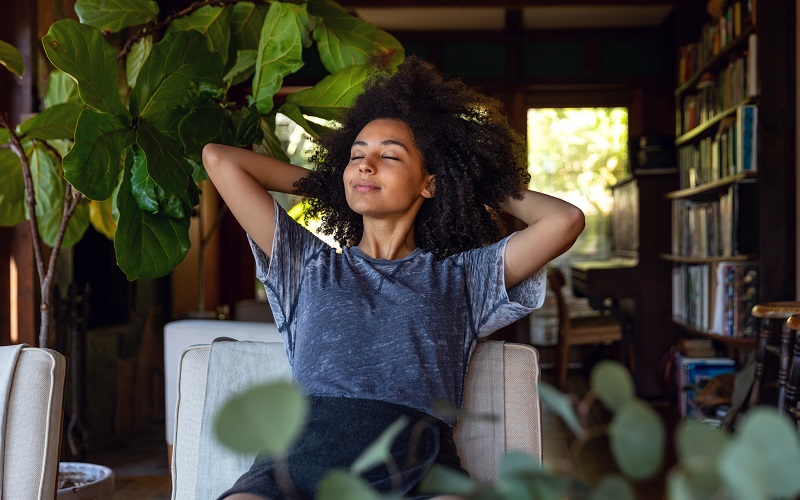
Are you self-isolating? Here’s seven things you can do to make the quarantine easier and reduce stress.
by Shaun Keegan, Regional Director, Cygnet Psychology Services, North
Life as we know it has been turned upside down by the coronavirus. Familiar routines have been lost, and new rules introduced, compounding feelings of anxiety and stress.
But in these challenging times, there are also countless examples of how, with a little flexibility and creativity, it’s possible to restore a sense of safety, and bring much-needed psychological relief.
1. Set up a structure
It’s so tempting to let things slide when we don’t leave the house. If you are self-isolating, as many of us are, keeping structure and purpose in the day makes a tremendous difference. Research carried out after earthquakes and other traumatic events has shown that being able to restore familiar space, routines and timings can minimize the impact of a major disruption, and this is just as important now in our daily lives.
Find ways to focus on what is in your control and the actions that you can take. Be specific about when you get up, go to bed, eat, shower and get washed.
This also means following practical guidance on areas such as washing your hands – although it is important to be aware that some people may experience difficult feelings or behaviours around hand washing and hygiene, and there are helpful resources to support with this.
2. Create balance with a mix of productive, rest and leisure activities
According to numerous studies, people with a full and satisfying life tend to have in it a certain amount of productive and rewarding work, and also a mix of physical or sporting activities, and time spent on hobbies. This means giving proper attention to all areas of your life.
Options might include:
Self -care activities/rewarding work:
Relaxation strategies such as breathing exercises, mindfulness or visualization. Doing chores might include cleaning or tidying.
Physical activities:
Dancing, fitness routine, yoga stretches. Learn to juggle. Beanbag games. Hopscotch.
Hobbies and Creative Activities:
Card games, puzzles, gardening, listening to a podcast or live-streamed musical or play, virtual museum or zoo trip, arts and crafts
The important thing is finding activities that work for you. You might also think about activities that have helped you to keep moving forwards in the past, things that bring you hope and comfort, and therefore the actions you could take now.
3. Set daily goals
With so much more time at home, it’s easy for the days to melt into each other. Write down a list of your priorities and turn them into concrete and realistic goals. Now is the time for that job you’ve been putting off for ages, like de-cluttering your wardrobe, doing the washing up or getting your finances in order.
Since the virus outbreak, there has been a rapid rise in submissions from would-be authors, according to book publishers this week. You may not feel there’s a novel in you, but blocking out time to read a book, start a blog or a create scrapbook will give you a sense of accomplishment.
4. Identify what makes you feel low and avoid them
While technology has in many ways made life easier, 24-hour news updates and social media on Covid-19 can be distressing and overwhelming. Think carefully about the types of resources you use for information and advice.
A very important aspect of looking after your mental health during this time is to identify reliable and trustworthy sources of information for updates, recommended actions and government guidelines. You can get the facts on www.gov.uk/.
When you feel anxious, try activities that engage you, such as trying to notice the sounds around you. Music can be a great activity for this, either to create or to listen to, and is something that we use in our therapy practices at Cygnet Health Care. Relaxation classes also help reduce the symptoms of anxiety. Breathing slowly and using grounding exercises – which can be as simple as pushing your feet into a hard floor or pressing your fingertips together – can be especially helpful.
5. Keep active
While the benefits of physical activity are well documented, it can often be the first thing that goes when we are confined to one place, or indoors. Exercising doesn’t have to mean running a marathon – it can encompass simple activities like tidying up, dancing, or making trips up and down stairs.
Cygnet Rainach House has modified indoor spaces for fitness workouts and training and Cygnet Elms Birmingham turned the TV lounge into a mini disco floor.
Even 20 minutes of exercise will temporarily release feel-good hormones like endorphins and serotonin. Exercise should be at least three times a week.
6. Connect with others
While it’s important to practice physical distancing to help protect the most vulnerable people in our society, that doesn’t mean isolating yourself emotionally. One incredibly important way to combat sources of stress is to stay connected with people. Making plans to call people who you would normally see in person and reaching out with regular messages will help battle feelings of loneliness and can offer the reassurance of a support network for yourself and others.
Many people are learning to connect via video apps to keep up with friends and share a laugh. It’s also worth thinking through all available resources and who you can call on to help you develop a sense of resilience in times of uncertainty in the future.
There are lots of fun ways to connect, even when shopping trips are limited. Many Cygnet services have set up tuck shops and mini newsagents’ where service users can buy treats and daily newspapers.
7. Eat well and sleep well
We all know how easy it is to reach for the biscuit tin, but during these challenging times, another top priority should be your health. If you take care of yourself by eating healthy meals and get a good night’s sleep, you can raise your energy levels and maintain good physical and mental health.
Up to a third of the population suffer from insomnia, yet often making small lifestyle changes or adjustments can help improve sleep problems. These can include avoiding screen time or watching TV just before bedtime, and restricting caffeine, sugar and alcohol, as they can all impact on the body, reduce the quality of sleep and increase feelings of anxiety in the long-term.
While these are particularly difficult times, relaxation techniques, a warm bath or practicing mindfulness can all help.
Ultimately, we can all take seemingly simple steps, focusing on what is in our control and being compassionate to ourselves and others. And when added together, its these simple steps that will help get us through the journey ahead.
About the author

Shaun has almost 40 years’ experience of working as a Clinical Psychologist, across a variety of settings. He is Cygnet’s Regional Director of Psychology Services for the North. Shaun’s current interests are in the ongoing professional development of Psychologists and in the use of computer technology as an assessment and therapeutic tool.